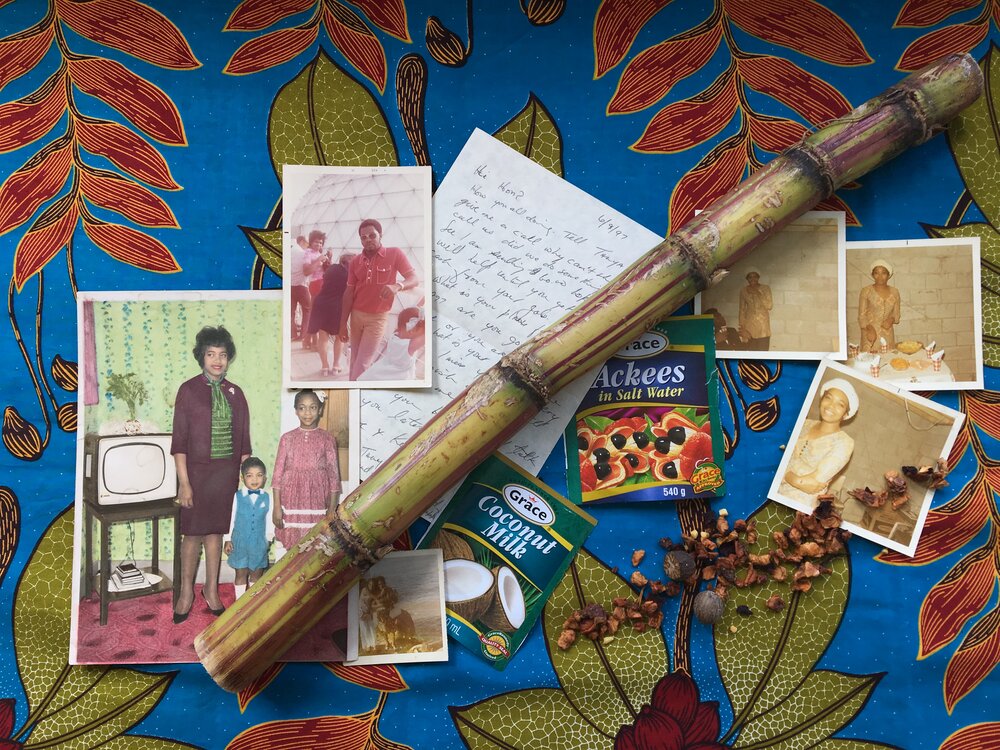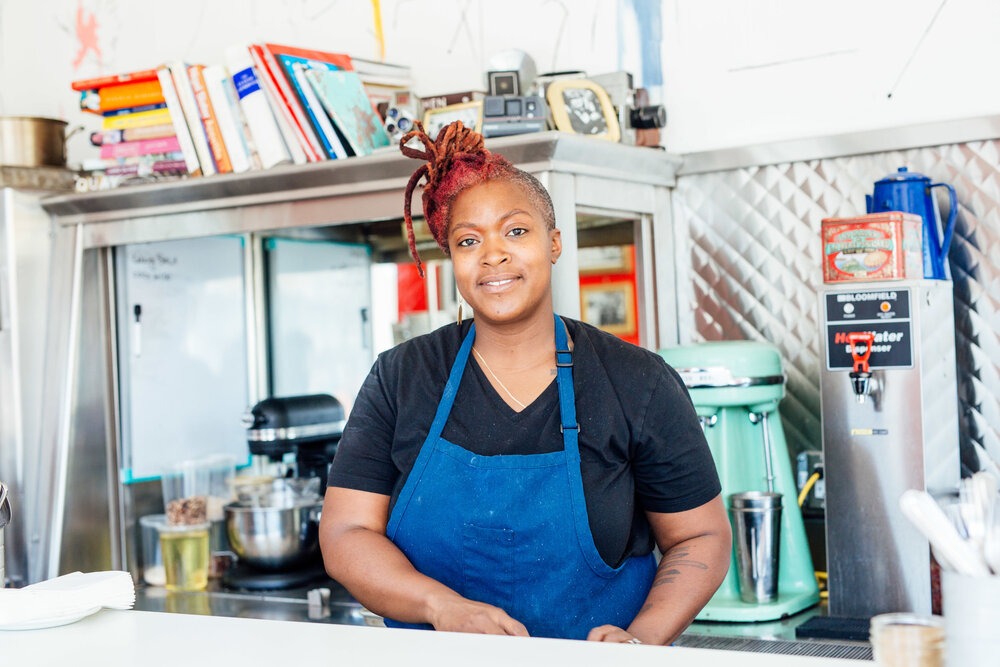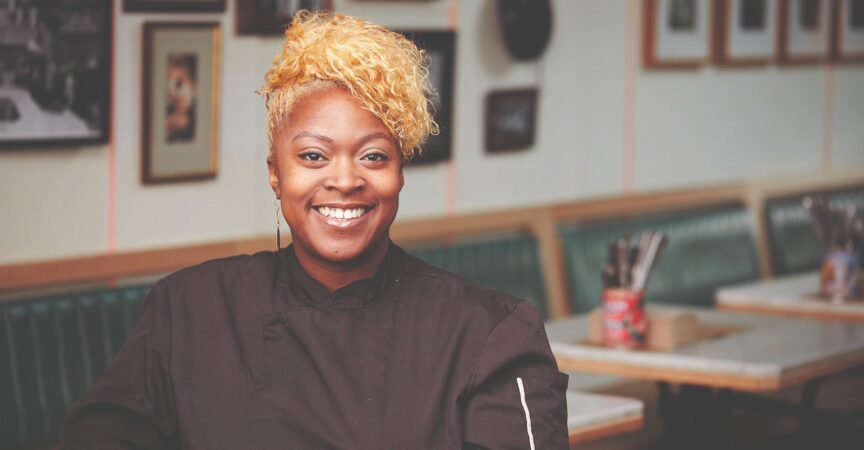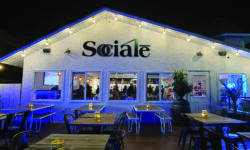Speaking up for Change: Social Advocacy in the Restaurant Industry
BY CHEF SUZANNE BARR
The views and opinions expressed in this article are those of its author and do not necessarily reflect those of MENU magazine, Restaurants Canada or its members.
For centuries, food has been an incredible way of uniting people. In our houses, the kitchen is often viewed as the heart of the home—the place where we gather around the table to eat and connect with our families after a long day. When we dine out at restaurants, we’re able to savour a meal in the company of loved ones and celebrate life’s precious moments.
Restaurants are veterans of serving their communities and, as restaurateurs, we’re in the business of building relationships through food. When the COVID-19 pandemic turned the world turned upside down in 2020, the ripple effects on the hospitality industry looked and felt more like violent whitecaps in the ocean. Many chefs, myself included, were forced to make difficult decisions about our way of life.
Trust the journey you’re on. If what you’re doing puts a smile on your face, you know you’re doing the right thing. — Suzanne Barr
Sadly, my Toronto-based restaurant, True True Diner, closed its doors in 2020. At its very core, True True Diner embodied a sense of community and the type of change I hope our industry fully embraces one day. It honoured the role of the diner at the heart of civil rights movements in Canada and the U.S. It was a place where culinary students and chefs from all walks of life could be mentored and learn from more experienced professionals. It celebrated front- and back-ofhouse staff with compensation above minimum wage and equal tipping. It was a place where the BIPOC and LGBTQ+ communities felt like they belonged. While the memories of True True Diner still tug at my heartstrings, its unexpected closure led me down a different path.
In the middle of the pandemic, I packed up my family and accepted a new job in my hometown, Miami. I have fond memories of this incredible city because my family emigrated from Jamaica in the 1980s, so it felt like a homecoming in many ways. Being back in Miami as an adult has been nostalgic. I’m witnessing how things have transformed over the past few decades, and I’m able to share it with my partner and son. Here, I’ve been immersed in an exciting new restaurant project. Although I couldn’t have predicted this path for myself, I truly believe that everything happens for a reason and I’m grateful to be on this journey.

The pandemic forced us to slow down and take it all in. While there has been no shortage of challenges over the past 18 months. It’s been a monstrous period of self-reflection, especially when it comes to social advocacy. We know that, fundamentally, the hospitality industry is rooted in archaic thinking when it comes to labour laws, wages and gender equity, diversity and inclusion, and more. This difficult period has urged our industry to place a greater emphasis on social advocacy efforts so that change can happen, one step at a time.
I’ve used this time to learn how I can do better every day. After all, learning is a life-long journey. As I embark on opening a new restaurant, investing in our future team and challenging systemic imbalances will continue to be a priority so we can continue to evoke change. I’m a strong advocate for people of colour, mental wellness, equal pay for equal work, LGBTQ+ communities, nutrition literacy and food source sustainability. Some of the questions that have been on my mind include: What does it mean to introduce health benefits and offer childcare support? How can we champion mental health within the industry? How can we offer English-as-a-Second Language classes for newcomers who are fresh out of culinary school? Most importantly, how can we create a space that nurtures our team so they can feel their best at work? Addressing these issues can start to dissolve archaic ways of thinking and lead to greater outcomes in the long run.
Now, more than ever, it’s important to highlight individuals who are putting in the work and using their voices to fight for change. I admire many people within the hospitality industry who are advocating for more inclusive, equitable spaces. People such as Ashtin Berry, a change maker with a mission to reinvent the hospitality industry through her collective, Radical Xchange, and Michael W. Twitty, a culinary historian and educator. To say they’re inspirational is an understatement.
At the end of the day, we all have a role to play in social advocacy. When others ask me what they can do, I say: start small in your direct actions. For example, when you purchase food, are you giving opportunities to BIPOC community businesses instead of large corporations? Are you creating a tipping system or abolishing it completely? People often think that advocacy has to be on a large scale, but it starts with you, your thoughts, and your actions.
I want to thank Restaurants Canada for honouring me as the recipient of the Social Advocacy Award at the 2021 Restaurants Canada Show. It’s always wonderful to be recognized for our work, and it affirms that the value of our voices cannot be underestimated. With all the ups and downs over the past while, if there’s one piece of advice I can provide, it’s: Trust the journey you’re on. If what you’re doing puts a smile on your face, you know you’re doing the right thing.

UPCOMING PROJECTS:
To say there are some exciting projects on the horizon for Chef Suzanne Barr is an understatement.
In April 2022, her book, My Ackee Tree: A Chef’s Memoir of Family, Food and Discovery is set to hit the shelves. It highlights her journey of becoming a chef, finding love, restaurant openings and closings, being a woman of colour in the industry and how Caribbean cuisine has influenced her life.
Barr is also launching several prepared foods, including a chip brand, a line of sauces and marinades named after her mother, and a frozen product line of classic southern diner food, appropriately named The Dinette.







